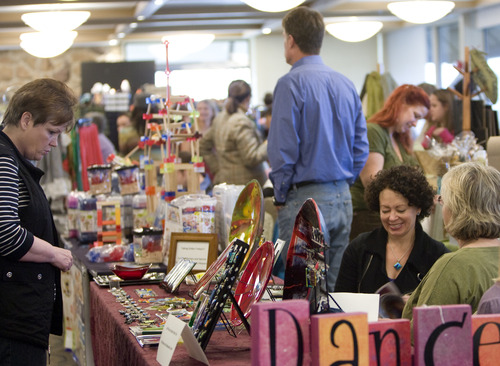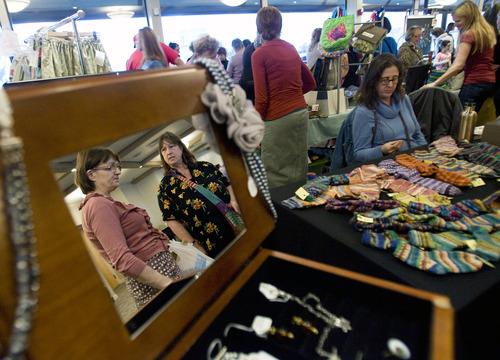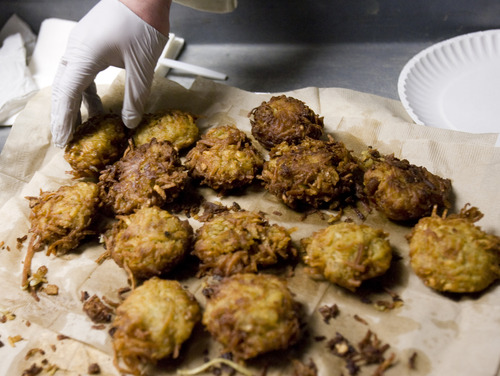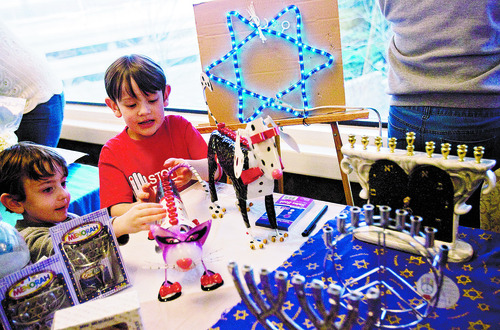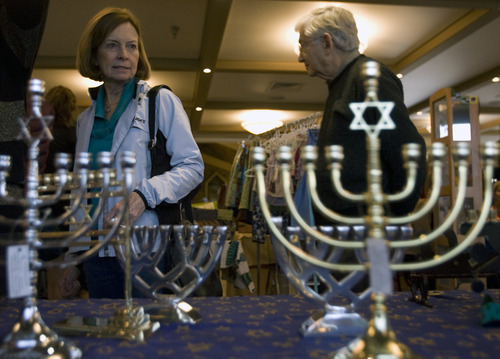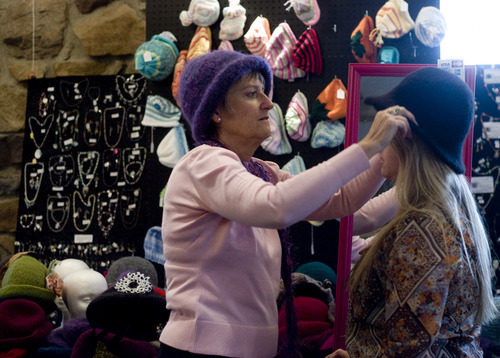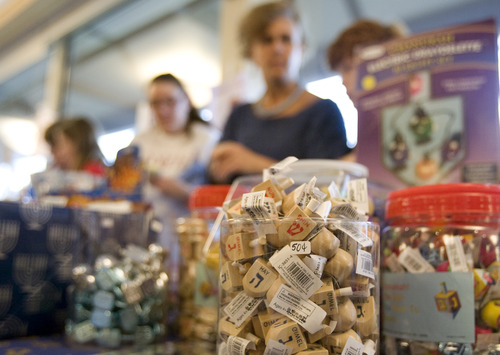This is an archived article that was published on sltrib.com in 2012, and information in the article may be outdated. It is provided only for personal research purposes and may not be reprinted.
Hanukkah is as much a celebration of friendship as it is of the miracle of the oil that lasted eight days.
"We light candles with family and friends, say a little prayer, it's not a very religious holiday, eat latkes, sometimes have jelly doughnuts, usually eat things fried in oil," said Rita Skolnick of the Wagner Jewish Community Center.
Skolnick circled around a dozen or so booths on Sunday during the center's annual Hanukkah Market, where hundreds of people ate traditional foods and bought gifts. The market has occurred in one form or another for about 20 years.
Hanukkah begins Saturday at sundown. The holiday is celebrated to commemorate when a one-day supply of oil burned the menorah for eight days in the Jewish temple.
Throughout the world, Jews will display their menorahs with candles and oil lamps in their windows for the Hanukkah festival, which lasts for eight days.
The holiday's dates change every year because it's set according to a lunar calendar. They also prepare traditional foods cooked in oil like latkes — a potato pancake — and soufganiyot — a jelly doughnut.
At the heart of the festival is the nightly menorah lighting: a single flame on the first night, two on the second evening, and so on until the eighth night of Hanukkah, when all eight candles shine.
Ruth Shirah is a local member of the National Council of Jewish Women, which teams every year with Christian and Muslim communities to help the less fortunate. Shirah and her sewing group make woolen caps and other items that they donate to help home-bound seniors, homeless veterans and refugees.
The items will be collected on Dec. 24 at West High School and then distributed Christmas Day.
"[Hanukkah] means getting together with dear friends," Shirah said.
Cynthia Bestvina, who is not Jewish, and her three children ate falafels at the market. She bought her children "Star Wars" books.
"I wanted to check out the market and expose the children to other cultures," she said.
Judy Dahlquist said her family lights candles and exchanges small gifts during the eight-day festival. She said she thinks Hanukkah has become more commercial, or about buying stuff, because it's gotten connected with Christmas in America.
"You spend time together without the TV on," she said. "Really, every Jewish festival is about the food."
Twitter: @rayutah


